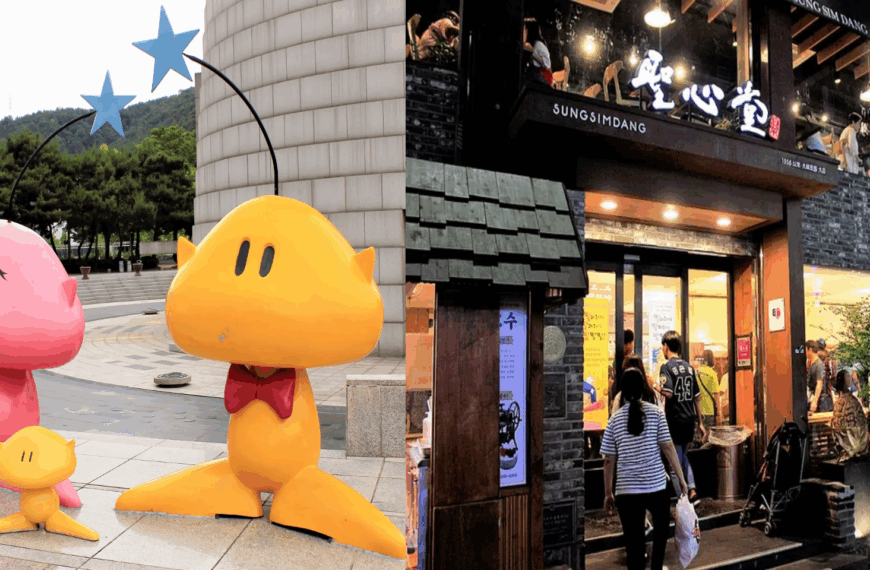The Unlikely Entrepreneur Who Scored 8/100 in English and Built a ¥5 Billion Business
How a failed student turned affiliate marketer revolutionized Japan’s beauty industry with zero meetings, flexible work, and a philosophy of “making it so simple even an idiot can do it.”
What if I told you that a high school graduate who couldn’t break 150 points across five subjects built one of Japan’s most successful salon chains in just four years?
Meet Takahiko Kitahara, the entrepreneur who went from scoring 8 points in English to creating a ¥5 billion business empire that spans 270 locations across Japan. His story isn’t just about business success—it’s about completely reimagining how an entire industry operates.
The Affiliate Marketing Millionaire Who Felt Empty
Born in 1983 in Nagano Prefecture, Kitahara’s journey began in the most unexpected place: affiliate marketing. While working as a salon manager, he was secretly earning ¥10 million per month (roughly $75,000) through online marketing—a side hustle that most people would kill for.
But here’s the twist: success felt hollow.
“I was making incredible money, but I felt like I wasn’t needed by anyone,” Kitahara reflects. This existential crisis led him to a radical decision—abandon his lucrative online income and dive headfirst into the notoriously difficult salon business.
The question was: How do you disrupt an industry known for long hours, low pay, and high turnover?
The “Idiot-Proof” Philosophy That Changed Everything
In May 2015, Kitahara opened the first Dears salon in his hometown. But this wasn’t just another hair salon—it was a laboratory for his revolutionary business philosophy:
“I’m an idiot. So I only create systems that even idiots can operate.”
This brutally honest self-assessment became the foundation of something extraordinary. Kitahara systematically eliminated every complex process, every dependency on “key personnel,” and every inefficiency that plagued traditional salons.
The results were staggering:
- 4 years to 100 locations (achieved in 2019)
- 90%+ booking rate across all locations
- 90%+ customer retention rate
- Zero employee turnover in most locations
- No advertising budget required for customer acquisition
The No-Manager Revolution
Here’s what makes Dears different from every other salon chain:
Zero Managers. Zero Meetings. Maximum Results.
Traditional salons rely on managers, daily meetings, and constant oversight. Kitahara threw that playbook out the window:
- No store managers – every employee is responsible for their own performance
- No meetings – replaced with weekly reports and clear role definitions
- Complete autonomy – staff can leave when there are no customers
- Flexible scheduling – work only 2-3 days per week if desired
The Employee-First Revolution
While most salons pay poverty wages, Dears offers:
- $2,200-$3,000 monthly salaries (well above industry standard)
- Complete flexibility – no customers means you can go home
- Full social insurance coverage
- Only 2-3 required working days per week
The result? A waitlist of people desperate to work for Dears, while competitors struggle with constant turnover.
The Appointment-Only Goldmine
Kitahara’s masterstroke was the complete elimination of walk-in customers. Every service is by appointment only, creating:
- Predictable revenue streams
- Zero wasted time for staff
- Premium positioning (scarcity creates value)
- Organic customer acquisition through word-of-mouth
“When you remove advertising costs and maximize efficiency, profitability becomes inevitable,” Kitahara explains.
From 1 to 270: The Franchise Formula
After perfecting his system with 2-3 test locations for over two years, Kitahara unleashed his franchise model:
The Timeline:
- 2015: First location opens
- 2019: 100 locations achieved
- 2020: Present in all 47 Japanese prefectures
- 2022: 270 total locations across 16 companies
But Kitahara didn’t stop at salons. His business empire now includes:
- Hair care product manufacturing (¥650 million in annual online sales)
- Website development (300+ corporate clients)
- Shared office spaces
- Business consulting and mentoring
The Online Community That Rivals Harvard Business School
Perhaps most intriguingly, Kitahara created “Kitahara’s Mind and Time Room”—an online community with over 2,000 entrepreneurs and business owners. Members pay for access to his business methodologies, 1-on-1 mentoring, and in some cases, partnership opportunities in new ventures.
This isn’t just passive income—it’s active empire building, where Kitahara identifies promising entrepreneurs and helps them launch businesses using his proven systems.
The Contrarian Lessons That Actually Work
1. Simplicity Beats Complexity Every Time
“If your system requires a genius to operate, you’ve already failed. Build for the average person, and everyone succeeds.”
2. Employee Happiness = Customer Happiness = Profit
“When employees have flexible schedules and fair pay, they provide better service. Happy employees create happy customers, and happy customers create sustainable profits.”
3. Scarcity Creates Premium Positioning
“By going appointment-only, we became the salon people had to plan for, not just drop into. This psychological shift changed everything.”
4. Test Small, Scale Fast
“Spend 2+ years perfecting your system with a few locations. Once it’s truly foolproof, expansion becomes mechanical, not magical.”
The Message for Dreamers and “Failures”
Despite his success, Kitahara regularly speaks to students, sharing this powerful message:
“I scored 8 points in English. I couldn’t break 150 points across five subjects combined. If you’re failing now, it doesn’t define your future. Keep trying, and eventually, a path will open.”
This vulnerability—combined with extraordinary business results—makes Kitahara’s story uniquely compelling for anyone who’s ever felt like an “underdog.”
The Future Empire
Kitahara isn’t stopping at salons. His expansion plans include:
- Agriculture businesses (leveraging the same systemization approach)
- Hotel chains (applying customer experience principles)
- 300-500 salon locations by 2025
- Cross-industry synergies between all ventures
What English-Speaking Entrepreneurs Can Learn
Kitahara’s success offers several universal principles:
- Systems beat talent – build processes that work regardless of who executes them
- Employee satisfaction drives customer satisfaction – invest in your people first
- Scarcity marketing works – being selective increases perceived value
- Test relentlessly before scaling – perfect the formula, then multiply it
- Simplicity is sophisticated – the best systems are often the most straightforward
The Bottom Line
Takahiko Kitahara’s story proves that you don’t need an MBA, perfect grades, or even industry experience to revolutionize a market. You need:
- Radical honesty about your limitations
- Relentless focus on system building
- Employee-first thinking that creates loyalty
- The courage to do things differently than everyone else
In a world obsessed with complicated strategies and guru tactics, Kitahara’s “idiot-proof” philosophy might just be the smartest approach of all.
What’s your biggest takeaway from Kitahara’s story? Could his “simplicity-first” approach work in your industry?







